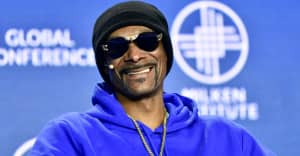It takes a lot of work to make a hit, but it takes near-genius to make dozens of them. That’s why The FADER has spent the past week looking at the career and stories behind Sean Paul, a Kingston, Jamaica-born dancehall artist turned international star. Paul’s six-album discography spans almost two decades, and a myriad of sounds, but — as Kardinal Offishall told me — no matter how far into the pop world he’s veered (this year he put out singles with Sia and Little Mix) he’s always kept it dancehall.
Paul still lives in Jamaica, and its perhaps this insistence on maintaining his identity that’s kept him ahead of the curve: he was collaborating on soca, reggaeton, and afropop tracks before it became cool. Now that these rhythms are becoming new inspiration for another generation of artists, we called up Sean Paul on tour in Toulouse, France to talk about what it means to be the ultimate crossover artist, his different audiences, and why Drake is dividing Jamaica.
Remember you had all these problems, like, your dad’s in prison? Or, you don’t have the money that other kids have and so you’re feeling kinda alienated, or left out? This music is a relief.
Do you remember the first time you heard your song on the radio?
Yeah. It was called "Baby Girl" and it was late 1996; it came out during Christmastime. I had a bredren who was a DJ and he told me he would play the track on the radio on Saturday. I was being played in the dance, but never on the radio so I went to the beach and had a spliff and a beer — it was about 2 p.m. and there was nobody around me. I sat there, looked out, and it played and I was like, damn. There was no cell phone! I couldn't tweet it! I was looking around to tell somebody, ‘Yo, yo this is my tune!’ but there was nobody there. I remember that feeling of euphoria, knowing that even though I was alone my voice was being heard.
Is it true that you moved to Toronto for a while?
That's an urban myth! It's a rumor. My grandfather moved to Canada in 1976 — he lived in Mississauga — and my brother was born there. So basically, from about 11 years old to 15, I was in Canada for a few weeks. But I represented Jamaica for water polo and swimming growing up, which I am very proud of and I still represent Jamaica right now for music. I have very close ties to Canada, but I've never lived anywhere besides Jamaica.
Do you think Jamaica gets enough credit for influencing pop music?
I'm proud of what Rihanna is doing, and Justin Bieber too. But back in the day we influenced people in pop culture too — it's not only nowadays! Remember “Sign” by Ace of Base? Big Mountain...they did “Baby I Love Your Way,” and "Hotstepper," by Ini Kamoze, was big in the early ’90s. People have to also remember these things go in circles. But there is a big debate in Jamaica right now about Drake. One side thinks he is taking our stuff and not giving credit, and the other side thinks he’s the only rapper that’s even talking about Jamaica right now.
What side are you on?
Well, I agree with the point that people must be given credit. But on the other side, yeah, the kid's doing what he feels and that's dope. Drake messing with dancehall and afrobeat is, I think, a testament to how big our genres have gotten.
Do you ever think about legacy even though you're still making music?
I want more songs out there. I want to continue. America has already moved away from me: the last time I had a song on the major charts in America was in "Give It Up To Me" with Keyshia Cole in 2007. But after the States, France started playing the fuck out of me, and Germany too. So I've had a lucrative career in Europe. If I do a New York show and play “Deport Dem,” everyone will go ahhh! But when I sing “She Doesn’t Mind” people don’t know it even though it's a hit everywhere else: Japan, Australia, Germany. It went to friggin’ number one in England! But then I’ll go to Switzerland and no one knows “Deport Dem.” So I'm thankful that I've had a lot of years and that different territories have supported me when I needed it. I'm already happy doing what I like since 1994. I've never looked back.
